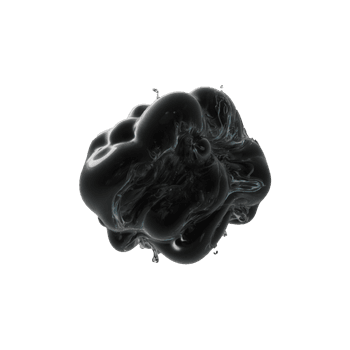Quick version
Erectile dysfunction and testosterone deficiency are two conditions that are often related but not always have a direct causal relationship. Testosterone plays an important role in sexual desire, blood flow and nerve function, but the amount of the hormone alone is not decisive for erectile ability. Factors such as vascular health, mental well-being, medications and lifestyle have an equal impact, and many men with normal testosterone levels can still experience erectile problems.
In men over 40, prostate enlargement can also contribute to impaired erectile ability. Common risk factors such as aging, hormonal changes, blood pressure and metabolism mean that the conditions often occur simultaneously. In some cases, treatments for prostate enlargement can also affect sexual function.
Since the causes of erectile dysfunction can be both hormonal, circulatory and psychological, it is important to have a comprehensive assessment. A blood test to measure testosterone provides valuable information about hormone balance and can be a first step towards the correct diagnosis and treatment. At Testmottagningen.se you can easily test your testosterone level and get a professional medical assessment from a doctor.
What is testosterone deficiency?
Testosterone deficiency means that the body does not produce enough of the male sex hormone testosterone. The condition can be caused by several factors, such as aging, stress, obesity, chronic illness or disorders of the testicles or pituitary gland. The deficiency affects many functions in the body and can manifest as reduced sex drive, fatigue, weight gain, depression and reduced muscle mass.
Testosterone also stimulates the production of nitric oxide (NO) in the corpora cavernosa of the penis, this is a substance that dilates blood vessels and enables erection. In the case of a pronounced testosterone deficiency (usually below 8 nmol/L), both sex drive and erectile ability can decrease significantly, since the body no longer responds normally to sexual stimuli.
Erectile dysfunction and hormonal balance
Erectile dysfunction is a collective term for difficulties in getting or maintaining an erection, reduced sex drive or lack of orgasm. In many cases, the problems are not just about blood flow to the penis, but about the interaction between hormones, the brain and mental health. When testosterone levels fall, dopamine influence in the brain also decreases, which dampens desire and motivation. This means that even if blood flow is normal, erections may not occur or become weaker. For many men, a simple blood test can therefore show whether the cause of potency problems lies in hormonal balance rather than in circulation.
Erectile dysfunction – a fairly common problem
Erectile dysfunction (ED) is the inability to achieve or maintain an erection long enough to have sexual intercourse. The condition is very common, especially after the age of 40, and can have both physical and psychological causes. In addition to testosterone deficiency, factors such as vascular disease, diabetes, high blood pressure, obesity, smoking, stress and certain medications can play a role. ED can also be an early warning sign of impaired vascular health, as the blood vessels in the penis are often first affected by atherosclerosis.
Erectile dysfunction can also occur with prostate enlargement (benign prostatic hyperplasia, BPH). Both conditions share several common risk factors such as aging, hormonal changes and impaired blood circulation in the pelvic area. An enlarged prostate can indirectly affect nerve signals and blood flow around the urethra, which in turn can contribute to weaker erections. In addition, some medications for prostate enlargement, such as alpha-blockers or 5-alpha-reductase inhibitors (such as finasteride and dutasteride), can cause side effects in the form of reduced sex drive, weaker erections or altered ejaculation. This means that men with both prostate enlargement and erectile dysfunction often need an individual assessment that takes into account both hormone balance, medication and circulation.
The role of testosterone in sexual function
Testosterone is a key factor in sexual health. The hormone affects both brain signaling and the local mechanisms that control erection. When testosterone levels are normal, nitric oxide production is stimulated, which causes the blood vessels in the penis to dilate and blood flow to increase. A lack of testosterone, on the other hand, leads to poorer blood vessel response and reduced sensitivity, which makes erections more difficult to achieve.
At the same time, it is important to understand that it is not only the concentration of testosterone that determines erectile ability. Many men with normal testosterone levels can still experience erection problems, while others with slightly lower levels function completely normally. Rather, it is about the balance between hormones, blood flow, nerve function and psychological well-being. The effect of testosterone also depends on how sensitive the body's tissues are to the hormone, and how efficiently it is converted to the active form, dihydrotestosterone (DHT). Therefore, a comprehensive assessment is always required, where both hormone values and lifestyle factors are taken into account.
Our customers' average testosterone values
Based on analyses carried out between May 1 - October 30, 2025, the average testosterone value of our male customers at Testmottagningen.se is as follows:
- Men 16–19 years: 17.37 nmol/L
- Men 20–29 years: 19.27 nmol/L
- Men 30–39 years: 19.89 nmol/L
- Men 40–49 years: 21.72 nmol/L
- Men 50–59 years: 20.87 nmol/L
- Men 60–70 years: 18.40 nmol/L
Data shows that testosterone levels often remain stable well into middle age, but individual variations are common. A blood test is therefore the only sure way to assess whether your testosterone is within the normal range.
Test your testosterone with us
If you are experiencing potency problems, fatigue or reduced sex drive, a blood test can give you answers. You can easily order a testosterone test with us and receive your results along with a medical assessment by a doctor. The test measures both total and free testosterone and gives a clear picture of your testosterone level.
What should I do if my testosterone level is low?
If your testosterone level is below 8 nmol/L in combination with symptoms, further investigation is recommended. Then a treating doctor should assess whether it is a primary testosterone deficiency (from the testicles) or secondary (from the pituitary gland). In some cases, testosterone treatment may be appropriate to restore balance, improve sex drive and reduce symptoms such as fatigue and depression.























